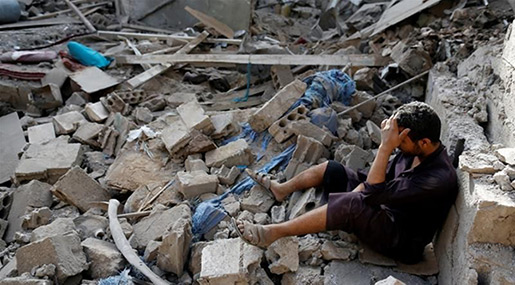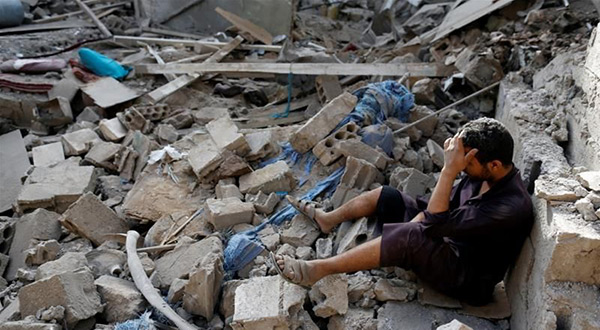
Report: Risk of Mass Killing Rose Most in Yemen in 2016

Local Editor
Yemen has been named the country where the risk of genocide or mass killing rose the most last year, according to a UK-based rights group.

In its annual "Peoples Under Threat" index released on Thursday, Minority Rights Group International [MRG] placed Syria at the top of the list for the third consecutive year.
But the MRG index found that risks rose most markedly in Yemen last year as the war raged on, with more than 10,000 people martyred and millions driven from their homes.
Yemen has been torn apart by conflict since 2014.
A coalition of Arab countries assembled by Saudi Arabia launched an air campaign against Yemen in March 2015 to try to restore the regime of resigned President Abd-Rabbu Mansour Hadi to power.
"Parties on both sides of the conflict have violated international humanitarian law with impunity," the report said.
Yemen was listed eighth in a list of 70 countries where people are seen as being at risk, following Syria, Somalia, Iraq, Sudan, Afghanistan, South Sudan and Democratic Republic of the Congo.
The index also said vulnerable people were at risk in a growing number of "no-go zones" around the world.
Last month, UN rights chief Zeid Raad al-Hussein condemned a number of governments for refusing access to UN officials.
Mark Lattimer, MRG's executive director, said in a statement that such "international isolation is a known risk factor for genocide or mass killing".
He added that "if governments are increasingly evading international scrutiny, this is a serious concern".
According to the report, UN human rights officials had been "granted no access to Syria since the crisis began in 2011".
In more than six years of war, at least 400,000 people had been martyred and nearly half the country's population had been displaced, according to UN estimates.
MRG calculates the index based on a number of indicators, including democracy and governance, conflict data, and displacement, among others.
yemen | saudi arabia | yemen conflict | united nations
Source: News Agencies, Edited by Website
Comments
- Related News



